
The Serene Beauty of Jose Ignacio
Jose Ignacio, once a quiet fishing village, has transformed into Uruguay's premier beach destination. Located on the southern coast of Uruguay, it is known for its pristine beaches, upscale yet laid-back ambiance, and stunning sunsets. Unlike the bustling Punta del Este, Jose Ignacio offers a more tranquil and exclusive experience that attracts celebrities and those seeking a peaceful retreat. The main attraction here is Playa Mansa, perfect for sunbathing and swimming, while Playa Brava offers stronger waves for surfers. The iconic lighthouse, Faro de Jose Ignacio, is a must-visit landmark, providing panoramic views of the coastline. Besides the natural beauty, the town boasts some of the finest dining experiences in South America, with world-class restaurants offering fresh seafood and local delicacies. Art and culture are also integral to Jose Ignacio's charm. The area hosts various art galleries and cultural events, including the annual Jose Ignacio International Film Festival. Whether you are wandering through the quaint streets, lounging on the beaches, or indulging in gourmet cuisine, Jose Ignacio promises a unique and memorable escape.
Local tips in Jose Ignacio
- Visit during the summer months (December to February) for the best weather and vibrant atmosphere.
- Make reservations in advance for popular restaurants, especially during peak season.
- Rent a car to explore the surrounding areas and beaches at your own pace.
- Pack light, breathable clothing and plenty of sunscreens to stay comfortable under the sun.
- Take time to watch the sunset at Playa Mansa; it's one of the most beautiful sights in Jose Ignacio.
- Check out local art galleries and events to immerse yourself in the cultural scene.
The Serene Beauty of Jose Ignacio
Jose Ignacio, once a quiet fishing village, has transformed into Uruguay's premier beach destination. Located on the southern coast of Uruguay, it is known for its pristine beaches, upscale yet laid-back ambiance, and stunning sunsets. Unlike the bustling Punta del Este, Jose Ignacio offers a more tranquil and exclusive experience that attracts celebrities and those seeking a peaceful retreat. The main attraction here is Playa Mansa, perfect for sunbathing and swimming, while Playa Brava offers stronger waves for surfers. The iconic lighthouse, Faro de Jose Ignacio, is a must-visit landmark, providing panoramic views of the coastline. Besides the natural beauty, the town boasts some of the finest dining experiences in South America, with world-class restaurants offering fresh seafood and local delicacies. Art and culture are also integral to Jose Ignacio's charm. The area hosts various art galleries and cultural events, including the annual Jose Ignacio International Film Festival. Whether you are wandering through the quaint streets, lounging on the beaches, or indulging in gourmet cuisine, Jose Ignacio promises a unique and memorable escape.
When is the best time to go to Jose Ignacio?
Iconic landmarks you can’t miss
The Fingers of Punta del Este
Discover the iconic Fingers of Punta del Este, a breathtaking sculpture symbolizing the connection between humanity and nature along Uruguay's stunning coastline.
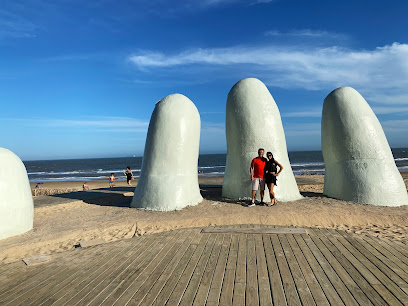
José Ignacio Lighthouse
Discover the enchanting José Ignacio Lighthouse, a historic beacon offering stunning coastal views and rich maritime heritage in Uruguay.
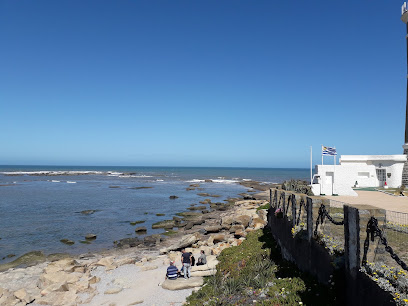
Parador La Huella
Discover the heart and soul of Uruguayan cuisine at Parador La Huella, where breathtaking views and delicious flavors create an unforgettable dining experience.
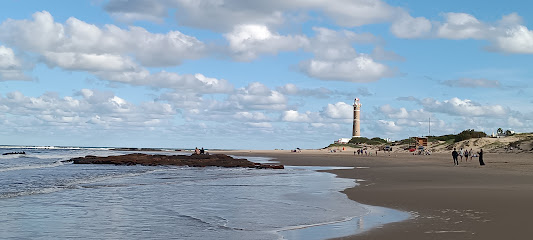
Laguna Garzón Bridge
Discover the breathtaking Laguna Garzón Bridge in Uruguay, where stunning architecture meets the serene beauty of nature, perfect for unforgettable experiences.
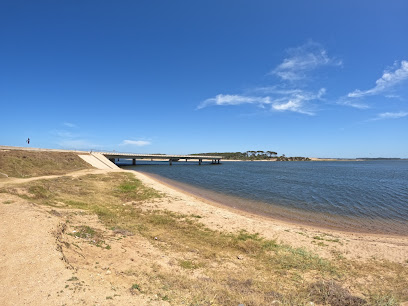
Playa Vik Jose Ignacio
Discover unparalleled luxury and stunning natural beauty at Playa Vik Jose Ignacio, a premier resort hotel on the breathtaking Uruguayan coast.

La Susana Jose Ignacio
Experience the culinary excellence of La Susana in José Ignacio, where fresh local ingredients meet breathtaking coastal views for an unforgettable dining experience.
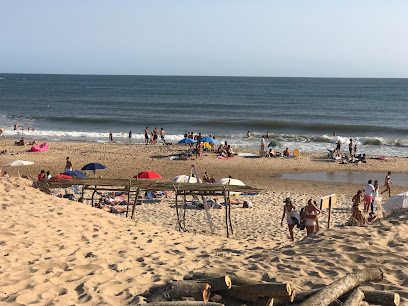
Bahia Vik Jose Ignacio
Discover luxury and tranquility at Bahia Vik Jose Ignacio, a premier resort hotel on Uruguay's stunning Atlantic coast.

La Viuda De Jose Ignacio
Experience the serene beauty and comfort of La Viuda De Jose Ignacio, a charming hotel offering stunning coastal views and exceptional service in Faro de José Ignacio.

La Excusa Café & Restó - José Ignacio
Discover La Excusa Café & Restó in José Ignacio, where vegan and gluten-free cuisine meets live music in a cozy coastal setting.
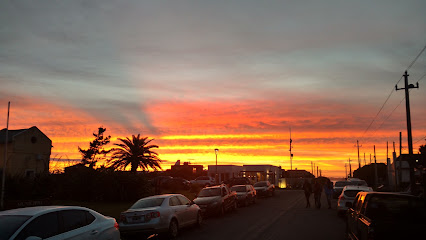
Solera Wine & Tapas Bar
Experience the best of Uruguayan cuisine with exquisite tapas and an impressive wine selection at Solera Wine & Tapas Bar in La Juanita.
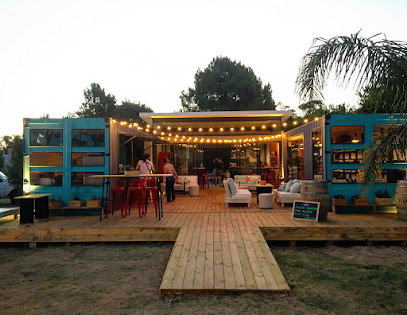
Estancia VIK José Ignacio
Discover the perfect blend of luxury and rustic charm at Estancia VIK José Ignacio, a unique hotel experience in the heart of Uruguay's stunning landscape.

Anastasio Hotel & Beach Club
Discover luxury and tranquility at Anastasio Hotel & Beach Club, where stunning coastal views and exceptional service create the perfect getaway.

Casa Suaya Hotel Boutique
Discover the serene beauty and luxury of Casa Suaya Hotel Boutique in José Ignacio, where relaxation meets the vibrant culture of Uruguay.

Playa Escondida
Explore the tranquil beauty of Playa Escondida, a hidden beach paradise in Maldonado, Uruguay, perfect for relaxation and natural exploration.
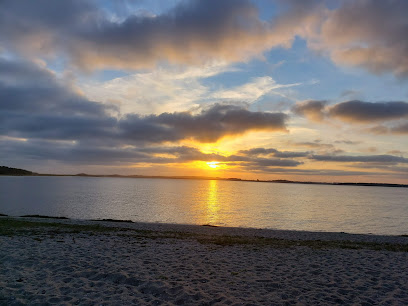
Posada Arenas de José Ignacio
Discover the tranquil beauty of Posada Arenas de José Ignacio, a charming hotel offering comfort and serenity along Uruguay’s stunning coastline.

Unmissable attractions to see
Estancia La Rinconada
Discover tranquility at Estancia La Rinconada, a natural park in Maldonado, perfect for relaxation, picnics, and enjoying Uruguay's stunning landscapes.
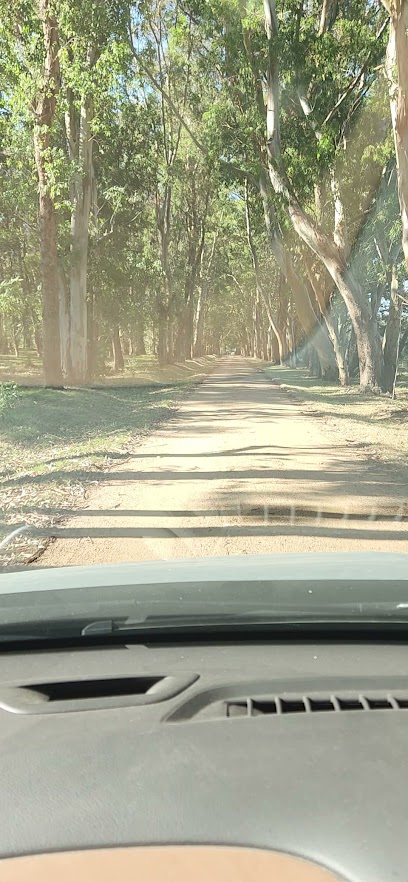
josé ignacio
Discover the coastal charm of José Ignacio, a stunning village in Uruguay known for its beautiful beaches, exquisite dining, and vibrant local culture.
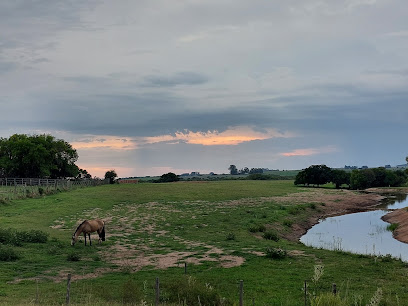
Refugio Anastasio
Explore Refugio Anastasio, a unique tourist attraction and event venue nestled in the scenic landscapes of Maldonado, Uruguay.
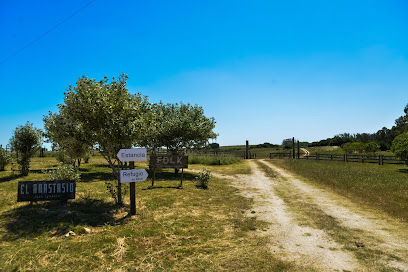
Fundación Cervieri Monsuárez
Discover the cultural gem of Fundación Cervieri Monsuárez in Faro de José Ignacio, showcasing local art and community spirit in a serene setting.
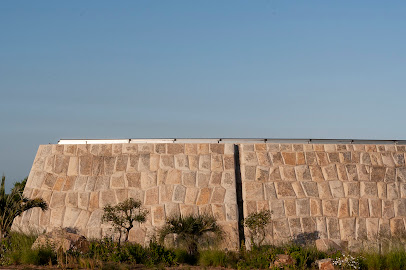
La mejor luna llena
Experience the magical beauty of the full moon at La Mejor Luna Llena in Faro de José Ignacio, a breathtaking tourist attraction in Uruguay.
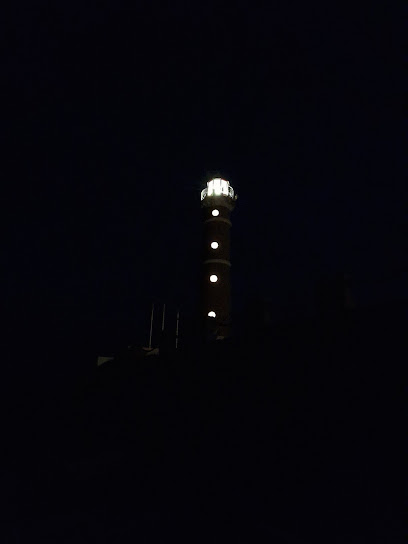
El Faro
Discover the historic El Faro lighthouse in Punta del Este, a stunning coastal landmark offering breathtaking views and rich maritime history.
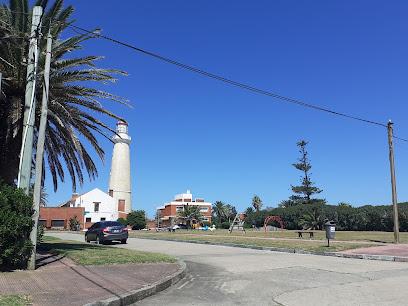
LARES (Cabalgatas & Paseos)
Experience the breathtaking beauty and tranquility of LARES Ecological Park in Faro de José Ignacio, Uruguay, with horseback riding and nature trails.

Mirador laguna de José Ignacio
Experience the stunning views and serene beauty of Mirador Laguna de José Ignacio, a must-visit attraction in Maldonado, Uruguay.
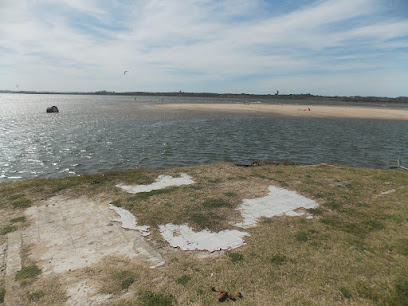
Vientos del Sur
Discover the serene beauty of Vientos del Sur, a picturesque country park in Uruguay's Maldonado Department, perfect for nature lovers and adventurers alike.
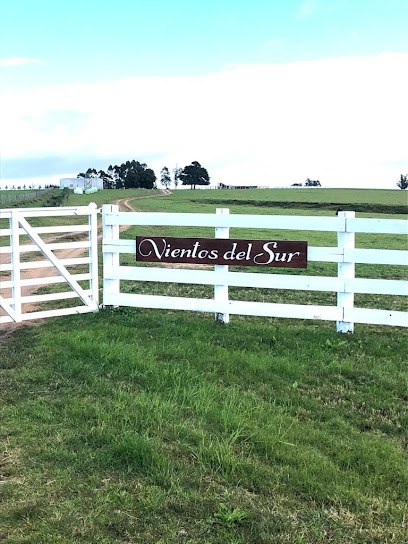
Juan Grande - Granja Orgánica
Explore the organic wonders of Juan Grande - Granja Orgánica in Maldonado, Uruguay, where sustainability meets serenity in nature's embrace.

Chacra Eduardo
Discover the tranquility of Chacra Eduardo, a beautiful rural retreat in Jose Ignacio, perfect for nature lovers and those seeking a peaceful escape.

Essential places to dine
Parador La Huella
Experience authentic Uruguayan cuisine at Parador La Huella in Faro de José Ignacio – where tradition meets breathtaking coastal views.
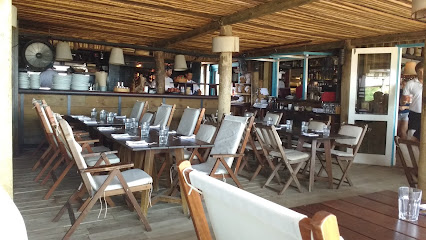
La Susana Jose Ignacio
Experience culinary excellence at La Susana in José Ignacio - where local flavors meet exquisite dining amidst stunning coastal views.
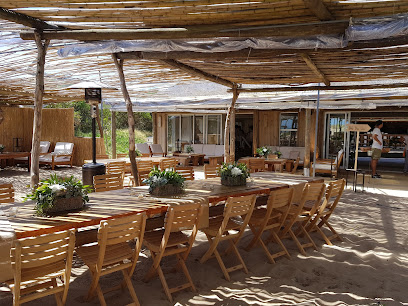
Popei
Experience authentic Uruguayan cuisine at Popei in Faro de José Ignacio – where every dish tells a story.
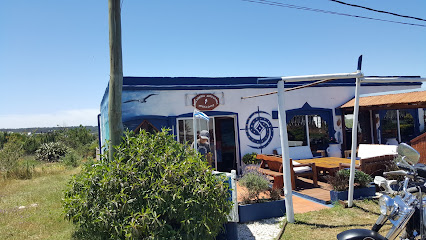
Mostrador Santa Teresita
Savor authentic South American cuisine at Mostrador Santa Teresita in Faro de José Ignacio – where local flavors meet modern dining.
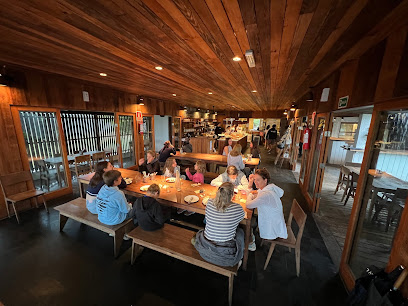
Il Faro
Experience authentic Italian cuisine at Il Faro in Faro de José Ignacio - where every dish tells a story.
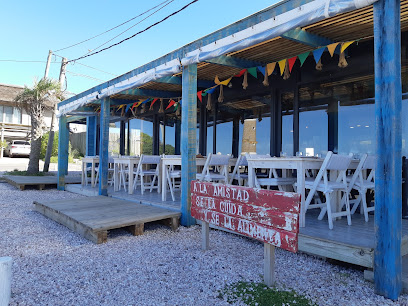
La Choza De Mar
Experience the best grilled flavors at La Choza De Mar in Arenas de José Ignacio, where delicious cuisine meets breathtaking beach views.
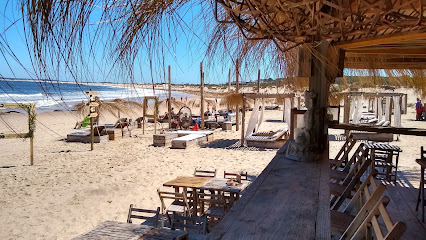
La Olada
Discover La Olada: A Culinary Gem in Balneario Offering Exquisite Dishes and Elegant Atmosphere.
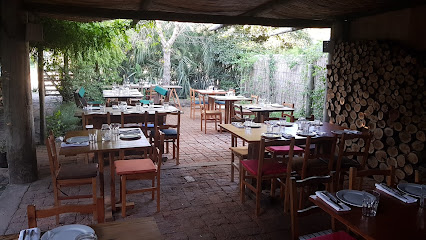
Marismo
Discover Marismo: A Culinary Delight in Arenas de José Ignacio Offering Authentic Uruguayan Cuisine Amidst Stunning Scenery.
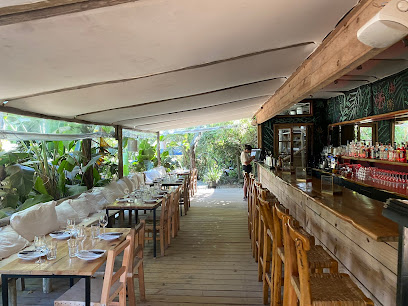
Cruz del Sur Cocina
Discover the culinary artistry at Cruz del Sur Cocina in Faro de José Ignacio—where organic flavors meet artistic inspiration.
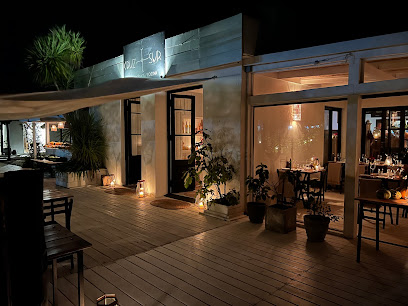
El Chiringo José Ignacio
Experience coastal dining at El Chiringo José Ignacio - where fresh seafood meets stunning ocean views in a vibrant atmosphere.
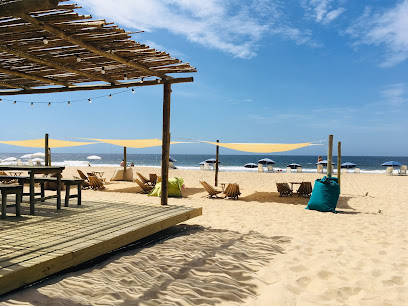
La Excusa Café & Restó - José Ignacio
Discover La Excusa Café & Restó in José Ignacio: A delightful blend of gastronomy, live music, and wellness amidst stunning coastal views.
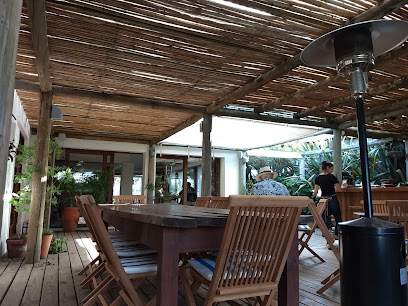
Solera Wine & Tapas Bar
Discover the culinary delights at Solera Wine & Tapas Bar in La Juanita—where exquisite tapas meet exceptional wines in a cozy atmosphere.
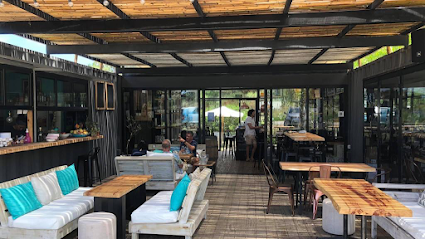
Napule Notte
Experience authentic Italian flavors at Napule Notte in José Ignacio—where culinary passion meets stunning ambiance.
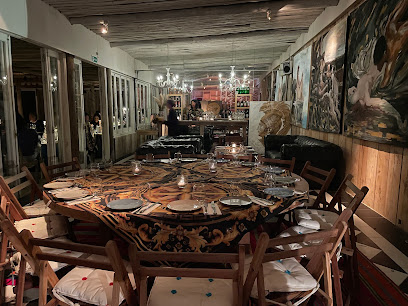
Crepas
Discover delightful crepes in Faro de José Ignacio at Crepas - where every bite is a taste of Uruguay's culinary charm.
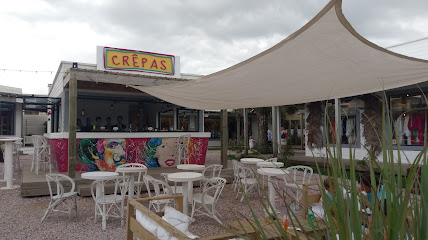
Del Bosque
Experience exceptional local cuisine at Del Bosque, nestled in beautiful Faro de José Ignacio, perfect for every food lover's journey.
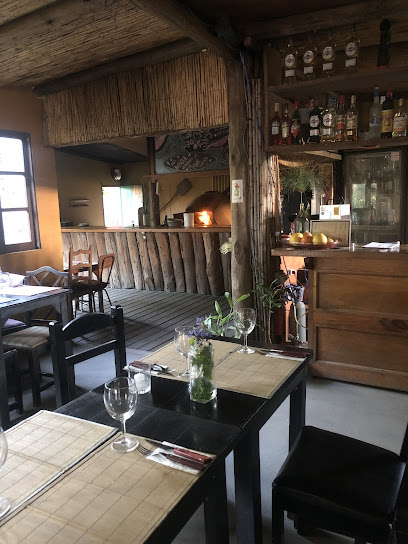
Markets, malls and hidden boutiques
Devoto Fresh Market José Ignacio
Explore Devoto Fresh Market in José Ignacio for a delightful selection of local produce and artisanal goods, capturing the essence of Uruguayan culture.
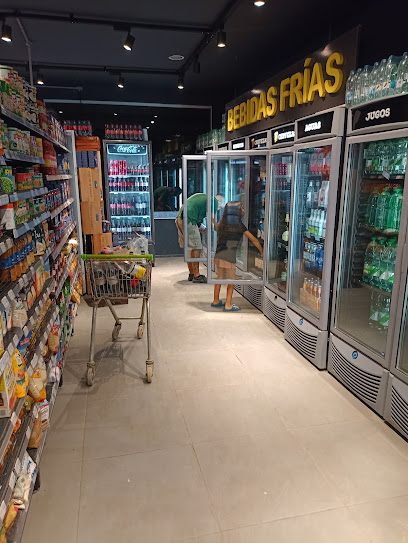
Freddo
Savor the finest ice cream at Freddo in Faro de José Ignacio, where every flavor tells a story of indulgence and delight.
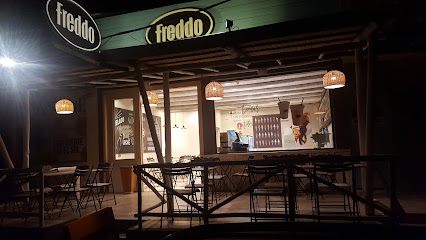
Paula Martini - Bajo el Alma
Experience the unique blend of local and international fashion at Paula Martini - Bajo el Alma, a stylish clothing store in Faro de José Ignacio, Uruguay.
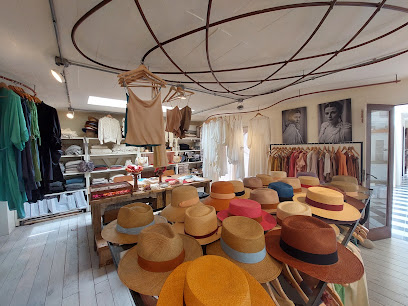
EL MERCADITO FRESHMARKET
Discover El Mercadito Freshmarket: a vibrant hub for local flavors, fresh produce, and artisanal crafts in the heart of Faro de José Ignacio.
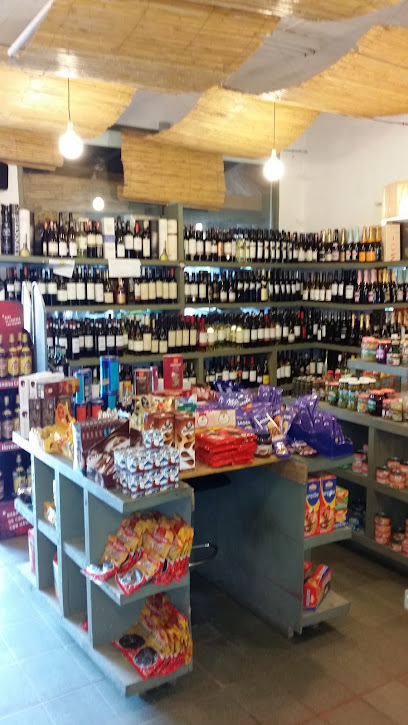
LA ESTEÑA
Explore LA ESTEÑA in Faro de José Ignacio for unique home goods that blend style with local culture, perfect for gifts or personal treasures.
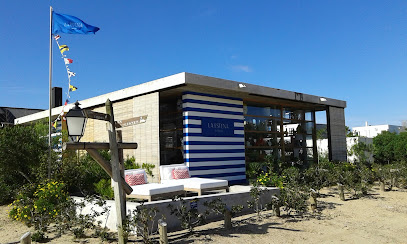
Santas Negras
Explore Santas Negras in Faro de José Ignacio for unique artisan crafts and souvenirs that embody the heart of Uruguay's culture.
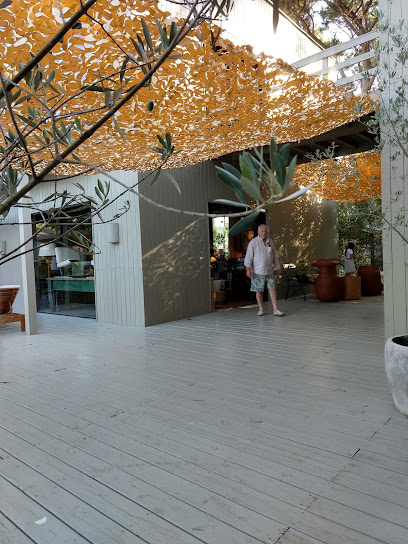
Parador Laguna Escondida
Experience the tranquil allure of Parador Laguna Escondida, where beach entertainment meets the serene beauty of Uruguay's coastal paradise.
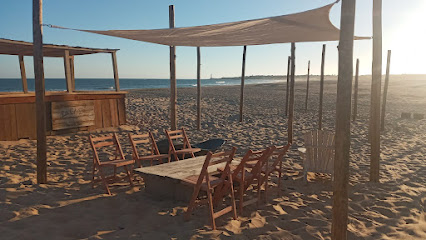
El Canuto
Explore El Canuto: A Boutique Haven in Faro de José Ignacio, Celebrating Local Artistry and Culture.
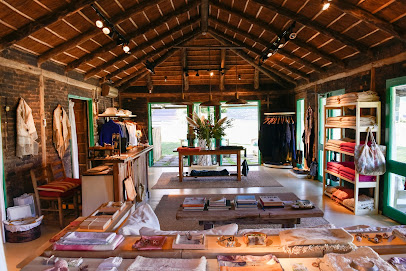
Sentido José Ignacio
Explore Sentido José Ignacio for exquisite home goods, fashionable clothing, and local art in the heart of Faro de José Ignacio.
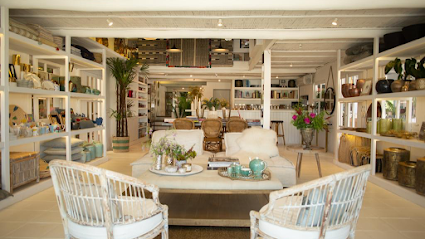
magma jose ignacio
Discover unique fashion treasures at Magma José Ignacio, a chic clothing store that embodies the spirit of Uruguayan coastal style.
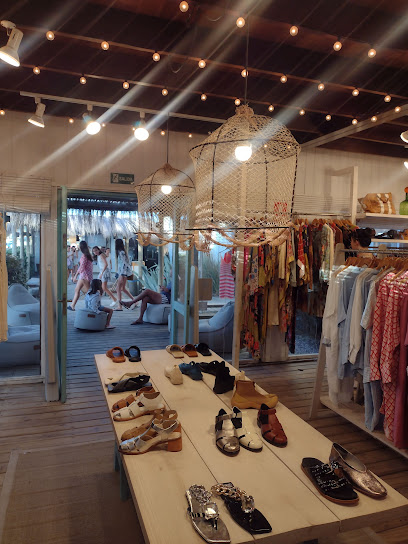
Fresh Market
Discover Fresh Market in Faro de José Ignacio, offering local produce and gourmet foods perfect for tourists seeking authentic Uruguayan flavors.
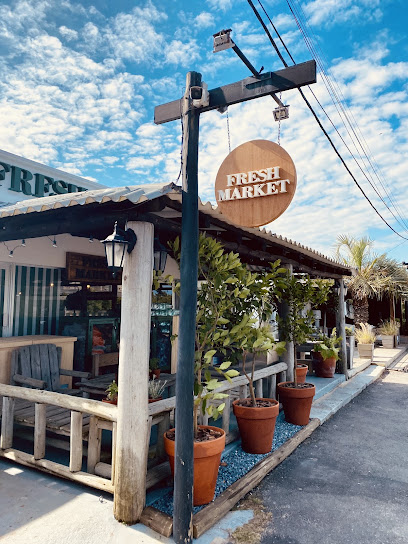
PANORAMA JOSÉ IGNACIO
Discover unique fashion pieces at Panorama José Ignacio, a stylish clothing store in the heart of La Juanita, Uruguay, where coastal charm meets contemporary style.
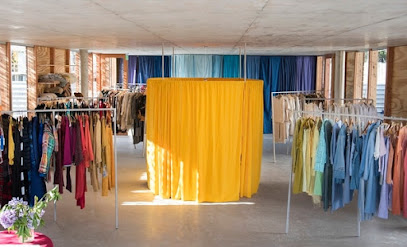
Premium Outlet
Explore Premium Outlet in Faro de José Ignacio for an exceptional shopping experience with a variety of stylish clothing options in a scenic setting.
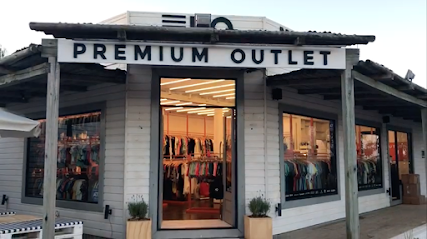
Renner
Explore the vibrant fashion scene at Renner in Faro de José Ignacio, where style meets the charm of Uruguay's stunning coast.
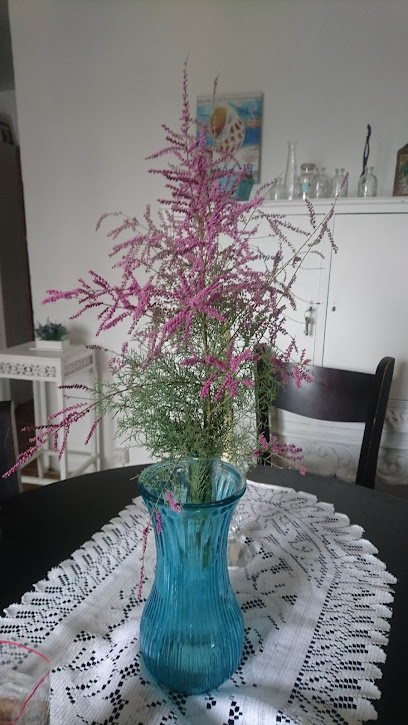
Anushka Elliot Boutique
Explore the stylish Anushka Elliot Boutique in Faro de José Ignacio, where fashion meets elegance in a stunning coastal setting.
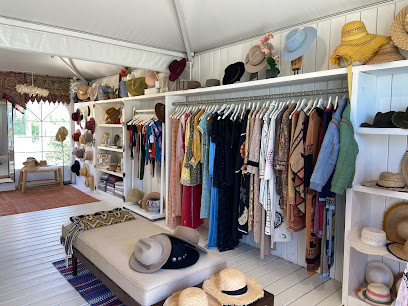
Essential bars & hidden hideouts
La Susana Jose Ignacio
Experience the culinary delights of La Susana in José Ignacio, where local flavors meet breathtaking ocean views for an unforgettable dining experience.
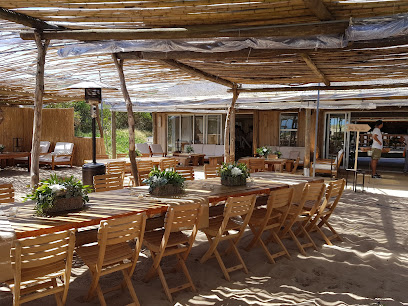
Popei
Experience the vibrant flavors of Uruguay at Popei, a charming restaurant in Faro de José Ignacio, where local meets international cuisine.
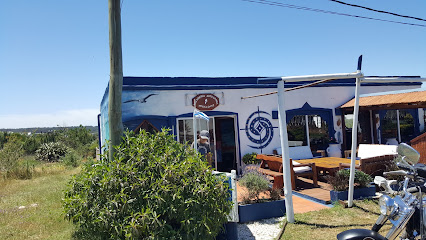
JUANA
Discover the rich flavors of Uruguay at JUANA, a charming restaurant in La Juanita offering an unforgettable dining experience.
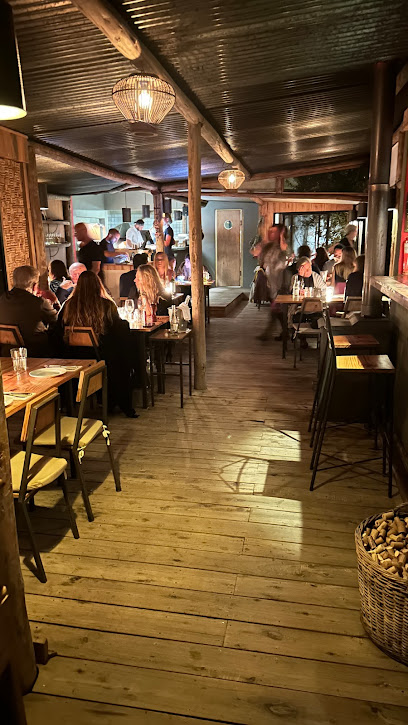
El Chiringo José Ignacio
Discover the enchanting flavors of the sea at El Chiringo José Ignacio, where culinary excellence meets breathtaking beachfront views.
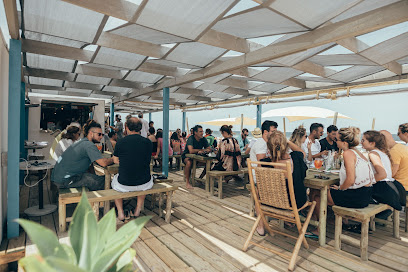
Solera Wine & Tapas Bar
Experience the best tapas and wines at Solera Wine & Tapas Bar in La Juanita, a culinary treasure in the heart of Maldonado.
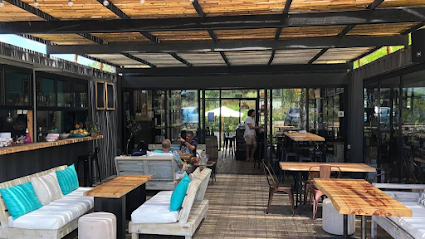
Destino Sushi & wok
Savor the essence of Asian cuisine at Destino Sushi & Wok in La Juanita, where fresh ingredients meet culinary artistry.
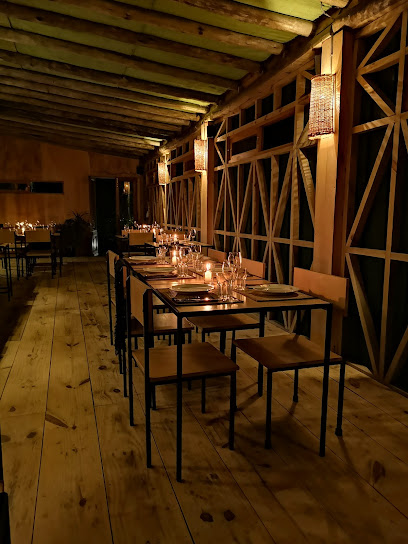
Crepas
Discover the delightful flavors of Crepas in Faro de José Ignacio, where every crepe is a taste of culinary art and local charm.
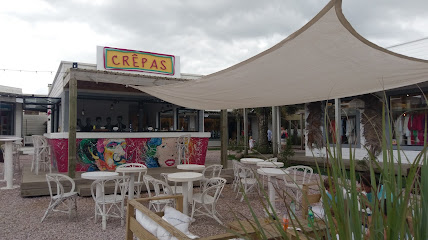
Parador Jose Ignacio Brava
Experience the culinary delights of Parador Jose Ignacio Brava, where local flavors meet breathtaking coastal views in a serene dining atmosphere.
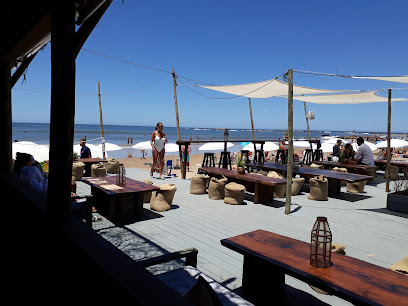
La Choza Cubana
Discover the vibrant flavors of Cuba at La Choza Cubana, a charming restaurant in Faro de José Ignacio, Uruguay.
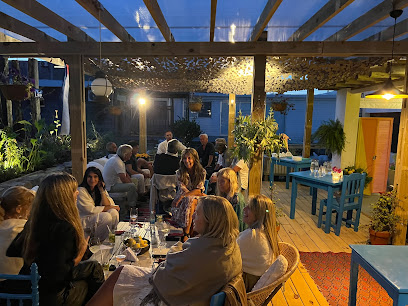
GURÍ
Experience the finest grilled dishes at GURÍ in Faro de José Ignacio, where culinary artistry meets a vibrant atmosphere.
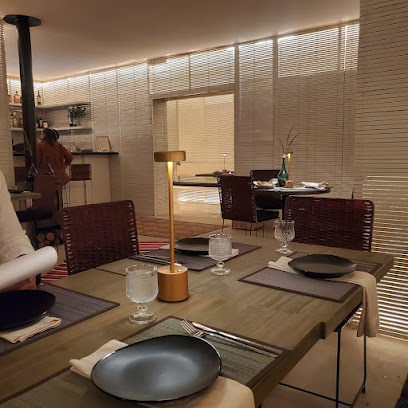
Mansa JOSÉ IGNACIO
Discover the coastal charm of Mansa José Ignacio, where stunning ocean views and delightful local cuisine meet in a vibrant bar atmosphere.
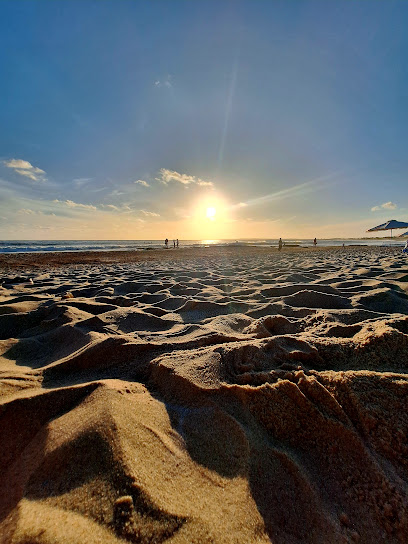
La Despensa
Experience the exquisite flavors of Faro de José Ignacio at La Despensa, a culinary haven blending local tradition with international flair.
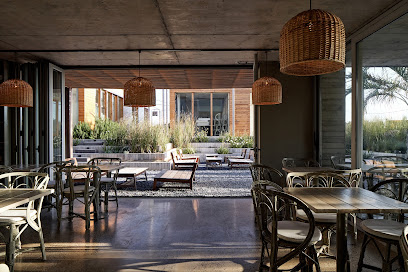
Vinos del Mundo / José Ignacio
Discover the essence of Uruguayan wines at Vinos del Mundo, a charming wine bar and store in José Ignacio offering tastings and a cozy atmosphere.
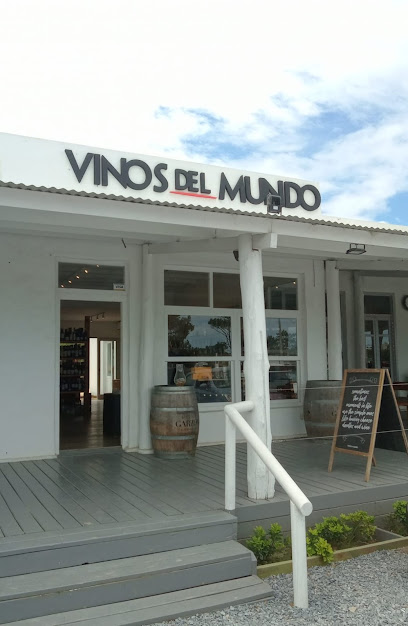
Francisca Campamento del Fuego
Discover the exquisite taste of local Uruguayan cuisine at Francisca Campamento del Fuego, where exceptional food meets stunning views in José Ignacio.
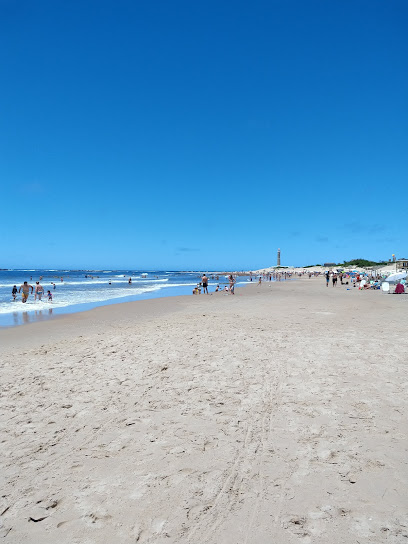
Local Phrases about Jose Ignacio
-
- HelloHola
[oh-lah] - GoodbyeAdiós
[ah-dee-ohs] - YesSí
[see] - NoNo
[noh] - Please/You're welcomePor favor/De nada
[por fah-vor/deh nah-dah] - Thank youGracias
[grah-see-ahs] - Excuse me/SorryPerdón/Disculpa
[pair-dohn/dees-kool-pah] - How are you?¿Cómo estás?
[koh-moh ehs-tahs] - Fine. And you?Bien. ¿Y tú?
[byen. ee too] - Do you speak English?¿Hablas inglés?
[ah-blahs een-glehs] - I don't understandNo entiendo
[noh ehn-tee-ehn-doh]
- HelloHola
-
- I'd like to see the menu, pleaseMe gustaría ver el menú, por favor
[meh goos-tah-ree-ah behr ehl meh-noo, por fah-vor] - I don't eat meatNo como carne
[noh koh-moh kahr-neh] - Cheers!¡Salud!
[sah-loohd] - I would like to pay, pleaseMe gustaría pagar, por favor
[meh goos-tah-ree-ah pah-gahr, por fah-vor]
- I'd like to see the menu, pleaseMe gustaría ver el menú, por favor
-
- Help!¡Ayuda!
[ah-yoo-dah] - Go away!¡Vete!
[veh-teh] - Call the Police!¡Llama a la policía!
[yah-mah ah lah poh-lee-see-ah] - Call a doctor!¡Llama a un médico!
[yah-mah ah oon meh-dee-koh] - I'm lostEstoy perdido
[ehs-toy pair-dee-doh] - I'm illEstoy enfermo
[ehs-toy ehn-fehr-moh]
- Help!¡Ayuda!
-
- I'd like to buy...Me gustaría comprar...
[meh goos-tah-ree-ah kohm-prahr] - I'm just lookingSolo estoy mirando
[soh-loh ehs-toy mee-rahn-doh] - How much is it?¿Cuánto cuesta?
[kwan-toh kwehs-tah] - That's too expensiveEso es demasiado caro
[eh-soh ehs deh-mah-see-ah-doh kah-roh] - Can you lower the price?¿Puedes bajar el precio?
[pweh-dehs bah-har ehl pree-syoh]
- I'd like to buy...Me gustaría comprar...
-
- What time is it?¿Qué hora es?
[keh oh-rah ehs] - It's one o'clockEs la una
[ehs lah oo-nah] - Half past (10)Y media (10)
[ee meh-dee-ah (dies)] - MorningMañana
[mah-nyah-nah] - AfternoonTarde
[tahr-deh] - EveningNoche
[noh-cheh] - YesterdayAyer
[ah-yehr] - TodayHoy
[oy] - TomorrowMañana
[mah-nyah-nah] - 1Uno
[oo-noh] - 2Dos
[dohs] - 3Tres
[trehs] - 4Cuatro
[koo-ah-troh] - 5Cinco
[seen-koh] - 6Seis
[sayss] - 7Siete
[syeh-teh] - 8Ocho
[oh-cho] - 9Nueve
[nweh-veh] - 10Diez
[dyehs]
- What time is it?¿Qué hora es?
-
- Where's a/the...?¿Dónde está el/la...?
[dohn-deh ehs-tah ehl/lah] - What's the address?¿Cuál es la dirección?
[kwal ehs lah dee-rehk-syohn] - Can you show me (on the map)?¿Puedes mostrarme (en el mapa)?
[pweh-dehs mohs-trahr-meh (ehn ehl mah-pah)] - When's the next (bus)?¿Cuándo es el próximo (autobús)?
[kwan-doh ehs ehl proh-ksy-moh (ow-toh-boos)] - A ticket (to ....)Un boleto (a ....)
[oon boh-leh-toh (ah)]
- Where's a/the...?¿Dónde está el/la...?
History of Jose Ignacio
-
Long before the arrival of Europeans, the area now known as Jose Ignacio was inhabited by the indigenous Charrúa people. They lived off the land, engaging in fishing, hunting, and gathering. Their rich culture and traditions laid the groundwork for the region's identity.
-
During the 16th century, Spanish explorers arrived, claiming the land for Spain. This period saw the establishment of small colonial settlements and missions. The Spanish influence can still be seen today in the area's architecture and local customs.
-
One of the most iconic landmarks in Jose Ignacio is its lighthouse, built in 1877. Standing 25 meters tall, it was constructed to guide ships safely along the treacherous Uruguayan coast. The lighthouse remains operational and is a symbol of the town's maritime heritage.
-
In the early 20th century, Jose Ignacio transformed into a modest fishing village. The local economy thrived on fishing, and small, humble homes dotted the coastline. This period marked the beginning of the town's close relationship with the sea.
-
In the latter half of the 20th century, Jose Ignacio began to gain popularity as a tourist destination. Its pristine beaches, tranquil environment, and picturesque landscapes attracted visitors from around the world. This influx of tourism led to the development of luxury accommodations and upscale restaurants.
-
Today, Jose Ignacio is celebrated for its blend of laid-back charm and sophisticated allure. It has become a hotspot for celebrities and wealthy individuals seeking a serene escape. Despite its growth, the town has managed to preserve its natural beauty and cultural essence.
Jose Ignacio Essentials
-
Jose Ignacio is located on the southeastern coast of Uruguay, about 40 kilometers northeast of Punta del Este. The nearest major airport is Carrasco International Airport in Montevideo, approximately 180 kilometers away. From Montevideo, you can rent a car, take a bus, or arrange for a private transfer to Jose Ignacio. The drive takes around 2 to 2.5 hours. There are also seasonal flights to Punta del Este’s Laguna del Sauce International Airport, which is closer, and from there it's a 45-minute drive to Jose Ignacio.
-
Jose Ignacio is a small village, making it easy to explore on foot or by bicycle. For longer distances, renting a car is highly recommended as public transportation options are limited. Taxis and private car services are available but can be expensive. During peak season, a car offers the flexibility to explore nearby beaches and attractions.
-
The official currency in Uruguay is the Uruguayan Peso (UYU). Credit cards are widely accepted in hotels, restaurants, and shops in Jose Ignacio, but it's advisable to carry some cash for smaller establishments and tips. ATMs are available, but they may charge high fees for international cards. It’s recommended to exchange some money at the airport or in bigger cities like Montevideo or Punta del Este.
-
Jose Ignacio is generally a safe destination for tourists. However, like any travel destination, it's important to take standard precautions. Avoid leaving your belongings unattended on the beach or in public places. While there are no specific high-crime areas in Jose Ignacio, it's always best to stay vigilant, especially at night.
-
In case of an emergency, dial 911 for immediate assistance. Jose Ignacio has a small medical clinic for minor health issues, but for serious medical emergencies, you may need to go to the hospital in Punta del Este or Montevideo. It’s important to have travel insurance that covers medical emergencies and evacuation. Pharmacies are available for over-the-counter medications.
-
Fashion: Do dress casually but stylishly; beachwear is acceptable at the beach, but smart casual is expected in restaurants. Avoid overly revealing clothing off the beach. Religion: Do respect local customs and traditions. Although Uruguay is a secular country, it's polite to be respectful around religious sites. Public Transport: Do be prepared for limited public transport options; renting a car is advisable. Greetings: Do greet people with a friendly 'Hola' and a handshake. Eating & Drinking: Do try local specialties like fresh seafood and Uruguayan wines. Don’t forget to make a reservation at popular restaurants, especially during peak season.
-
To experience Jose Ignacio like a local, visit the local markets for fresh produce and artisanal goods. Engage with locals, who are often friendly and willing to share tips about the best spots to visit. Don’t miss the sunset at the lighthouse or a meal at one of the renowned beachfront restaurants. Renting a bike can be a great way to explore the area at a leisurely pace.
Trending Landmarks in Jose Ignacio
-
The Fingers of Punta del Este
-
José Ignacio Lighthouse
-
Parador La Huella
-
Laguna Garzón Bridge
-
Playa Vik Jose Ignacio
-
La Susana Jose Ignacio
-
Bahia Vik Jose Ignacio
-
La Viuda De Jose Ignacio
-
La Excusa Café & Restó - José Ignacio
-
Solera Wine & Tapas Bar
-
Estancia VIK José Ignacio
-
Anastasio Hotel & Beach Club
-
Casa Suaya Hotel Boutique
-
Playa Escondida
-
Posada Arenas de José Ignacio
Nearby Cities to Jose Ignacio
-
Things To Do in Punta del Este
-
Things To Do in Montevideo
-
Things To Do in Colonia del Sacramento
-
Things To Do in La Plata
-
Things To Do in Buenos Aires
-
Things To Do in Tacuarembó
-
Things To Do in Fray Bentos
-
Things To Do in Mar del Plata
-
Things To Do in Rosario
-
Things To Do in Encarnacion
-
Things To Do in Carmen del Parana
-
Things To Do in Córdoba
-
Things To Do in Florianópolis
-
Things To Do in Villarrica
-
Things To Do in Puerto Iguazú








